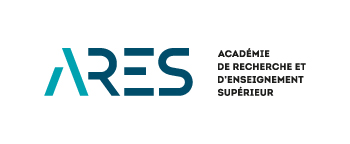01/ Goals
The European Microfinance Programme (EMP) was launched in 2005 in response to a growing demand for training in development activities, particularly in microfinance. Currently, the EMP is jointly organised by three European universities (Université libre de Bruxelles, Université de Mons and Université de Paris-Dauphine) and four non-governmental organizations ADA, BRS, CERISE and HUMUNDI.
The purpose of the programme is to train microfinance professionals from both the North and the South and contribute to the strengthening of microfinance institutions worldwide in accordance with the highest international standards.
The EMP offers a multidisciplinary approach on development issues in the microfinance sector. The programme combines solid theoretical foundations, practical knowledge, and the possibility of an on-field internship. The EMP works in close connection with the Centre for European Research in Microfinance (CERMi), which offers optional seminars, conferences, and other research activities to the EMP students (www.cermi.eu).
02/ Programme content
The programme lasts one year (60 ects).
It is spread over 3 periods:
- From mid-September to January: Management of social finance institutions, Social banking, Financial management, Topics in Financial inclusion & Microfinance, Financial inclusion, Contextual issues in social finance,
- From February to April: Digital finance, Assessment of Social Finance,
- From May to August: Students can complete a two-to-four-month field internship in a microfinance institution in a developing country. The Specialized Master in Microfinance does not provide any financial support for the expenses related to that internship. However, students have the possibility to look for grants and financial support from foundations, associations, etc.
Courses (all in English) are held 4-5 times a week in the evening hours (from 6 pm to 9 pm). Some courses may be organized on Saturdays from 9 am to 12 pm.
03/ Admission
Admission is delivered by the European Microfinance Programme Management Committee upon a commission evaluation of the candidates.
Applicants to the one-year programme must already hold a Master Degree - 300 ECTS - (or a degree considered as equivalent by the jury) in one of the following disciplines: development cooperation, economics, agronomy, management or finance.
Possibly, other qualifications may be accepted.
If you do not have a second cycle diploma, the jury may value relevant professional experience in the field. If you wish to value relevant professional experience, please note that you will be asked to provide relevant employer certificates in the admission procedure.
Applicants must have field experience in developing countries.
Mastering English is required.
Applicants will find more information about the programme and the detailed application procedure on our website.
They must submit their application to both ARES and EMP.
04/ Additionnal information
Number of scholarships available: 10
Length of the training: one academic year
Teaching language: English
05/ Universities
Universities:
- Université de Mons (UMONS) - Warocqué School of Business ans Economics
- Université libre de Bruxelles (ULB) - Solvay Brussels School of Economics and Management (SBS-EM)
In Collaboration with :
- Université Paris-Dauphine (France)
- ADA, BRS, CERISE and HUMUNDI
Programme directors:
- Prof. Marc Labie
- Prof. Ariane Szafarz and Prof. Marek Hudon


